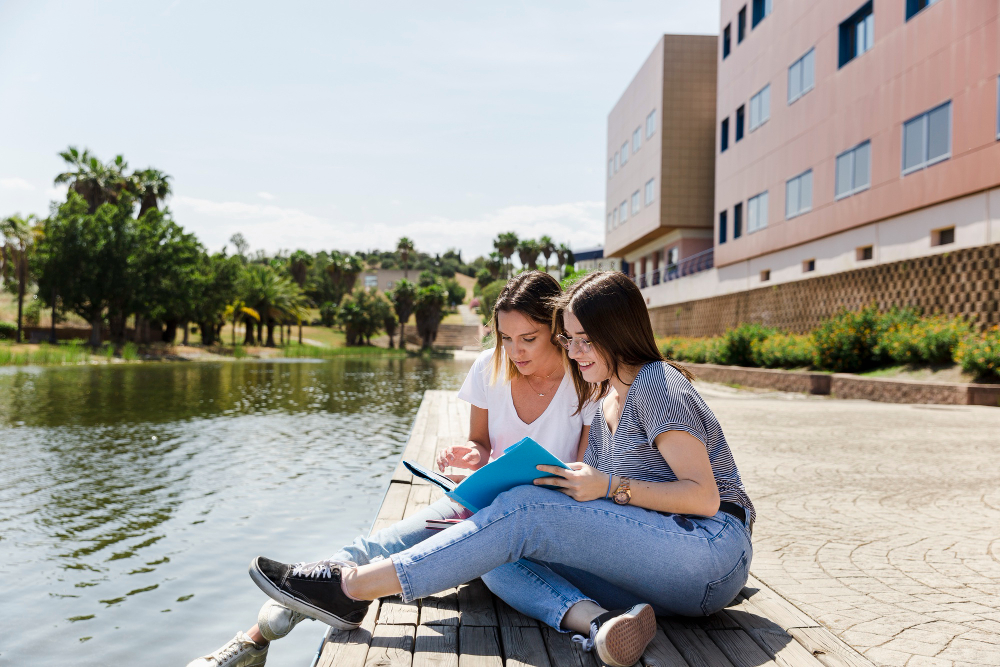
Australia Student Accommodation Guide
Australia is one of the most popular study destinations in the world, known for its high-quality universities, laid-back lifestyle, and diverse communities.
If you’re planning to study there, securing the right accommodation is a crucial step. The right housing can enhance your academic experience, improve your wellbeing, and help you adjust to a new environment. Here’s a comprehensive guide to student accommodation in Australia, including your options, what it costs, and practical advice to help you settle in.
Types of Student Accommodation
1. On-Campus Accommodation
Many Australian universities offer accommodation on or near campus. This can include student residences, residential colleges, or university-owned apartments. These are ideal for first-year students or international students looking for convenience and built-in community.
On-campus housing may include shared rooms, single rooms with shared facilities, en-suite rooms, or studio apartments. Some residences provide meals and organised social events.
Pros: Close to classes and university facilities, safe, good for making friends, support services available
Cons: Limited availability, fixed-term contracts, sometimes more expensive than renting privately
2. Purpose-Built Student Accommodation (PBSA)
These are privately owned apartment complexes designed specifically for students. Companies such as UniLodge, Scape, Iglu, and Student One manage these buildings in major cities like Sydney, Melbourne, Brisbane, Adelaide, and Perth. Rooms are often fully furnished and include utilities, internet, and access to communal amenities like gyms, study areas, and lounges.
Pros: Modern facilities, secure, bills included, student-only community
Cons: Can be more expensive, especially in city centres
3. Private Rentals (Shared Housing)
Many students choose to rent a house or apartment off-campus with friends or housemates. This is common for second-year students and above. You can rent a single room in a shared house or a whole apartment with others.
Pros: More independence, wider choice of locations, often cheaper
Cons: Must manage your own bills, leases, and household duties, some places are unfurnished
4. Homestay
Homestay involves living with a local host family in a furnished room. Meals are often included, and this option is popular among international students, especially those attending English language colleges or in their first semester.
Pros: Cultural immersion, meals provided, supportive family environment
Cons: Less privacy, house rules may apply
5. Temporary or Short-Term Accommodation
For students arriving without permanent housing arranged, short-term options include hostels, budget hotels, or serviced apartments. Some universities also provide temporary accommodation or partner with nearby providers to assist new arrivals.
Pros: Flexible and convenient while you search for permanent housing
Cons: Not ideal long-term, can be expensive over time
Average Costs of Student Accommodation in Australia
The cost of accommodation varies by city, location, and type of housing. Here’s a general guide to weekly prices in AUD:
| Accommodation Type | Weekly Cost (AUD) |
|---|---|
| On-campus housing (shared) | $150–$300 |
| On-campus studio or en-suite | $250–$450 |
| Private PBSA studio | $350–$550 |
| Shared house/private rental room | $180–$300 + bills |
| Homestay (with meals) | $250–$350 |
| Short-term hostel/accommodation | $200–$400 |
Bills for water, electricity, gas, and internet can add an extra $25–$50 per week if not included in rent. In major cities like Sydney and Melbourne, accommodation costs are significantly higher than in regional cities like Hobart or Darwin.
Tips for Finding and Managing Student Accommodation
1. Start Early
Demand for accommodation is high, especially before each semester starts. Apply for on-campus or PBSA housing as soon as you receive your offer. If renting privately, begin searching at least one to two months in advance.
2. Use Trusted Platforms
Look for listings through university websites, Student Housing Australia, Flatmates.com.au, realestate.com.au, Domain.com.au, UniLodge, or property managers linked to your institution.
3. Understand What’s Included
Check if rent covers electricity, water, internet, and furnishings. If not, factor those into your budget. PBSA and on-campus housing usually include these, while private rentals may not.
4. Inspect the Property First
Whenever possible, inspect the accommodation in person or via a video tour before signing a lease. Ensure the property is clean, safe, and as advertised.
5. Know Your Rights
In Australia, each state has residential tenancy laws to protect renters. Read the lease carefully, understand your rights and responsibilities, and be clear on the notice period, bond conditions, and maintenance obligations.
6. Budget Realistically
Don’t forget to budget for food, transport, phone bills, study materials, and entertainment in addition to rent. Use a weekly or monthly budget to manage your expenses effectively.
7. Consider Commute Time
Accommodation in the city centre may be closer to nightlife and shops but can be more expensive. If you’re willing to travel 30–45 minutes by public transport, you can often find better-value options in suburban areas.
8. Talk to Support Services
Most universities have accommodation advisors, student support teams, and international offices to help with housing questions. They can also guide you to emergency accommodation or dispute resolution if needed.
Final Thoughts
Finding the right student accommodation in Australia is about balancing cost, comfort, location, and lifestyle. Whether you’re living on campus with other students or renting a shared house near the beach, your home away from home should support both your studies and your wellbeing. Each student has different needs – some prioritise independence and space, while others want community and convenience.
Start early, explore all your options, ask plenty of questions, and read your contract carefully. With the right preparation, your accommodation can help you settle into Australian student life and enjoy everything this vibrant, welcoming country has to offer.




